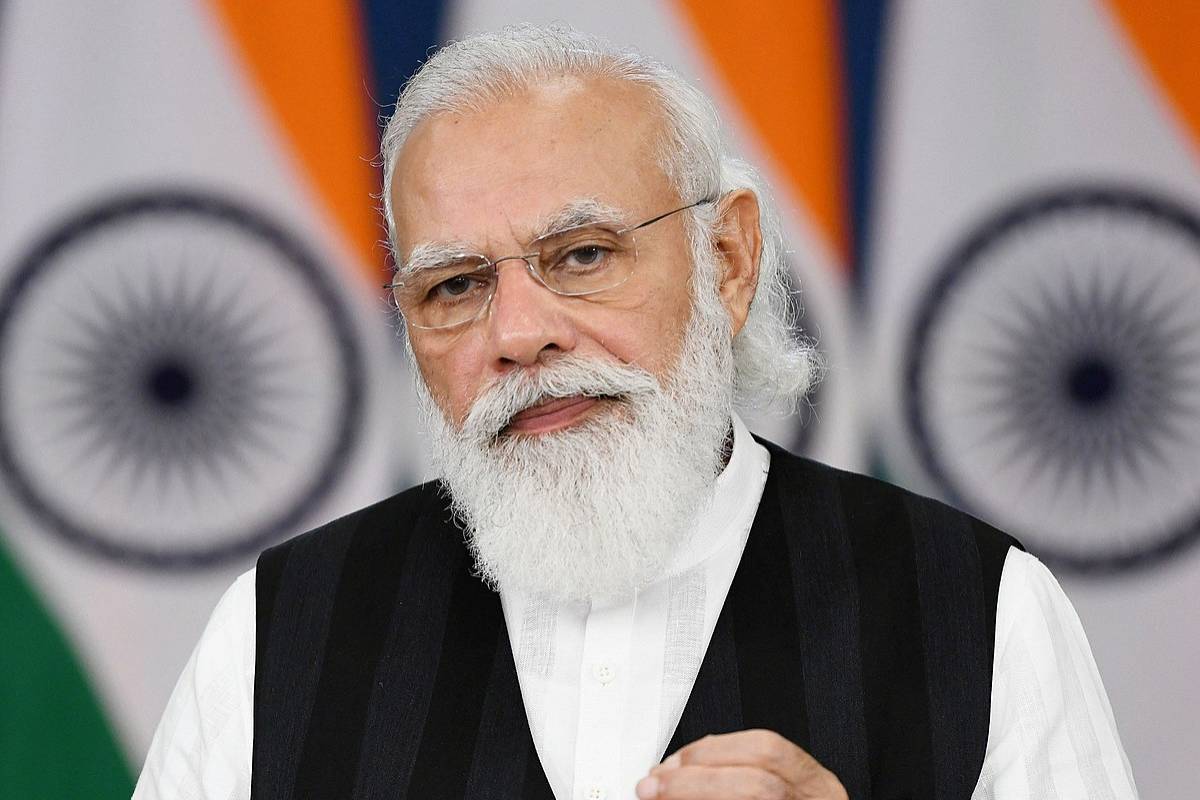Rahul Gandhi hits out at PM, Adani in Rae Bareli
Congress leader Rahul Gandhi on Friday hit out against Prime Minister Narendra Modi and Industrialist Gautam Adani on the second day of his Rae Bareli visit.
Emphasizing on reforms in the judicial system, Prime Minister Narendra Modi on Saturday said laws should be written in simple and regional languages so that even the poorest of poor can understand the new legislation.

File Photo
Emphasizing on reforms in the judicial system, Prime Minister Narendra Modi on Saturday said laws should be written in simple and regional languages so that even the poorest of poor can understand the new legislation.
Addressing the inaugural session of the All India Conference of Law Ministers and Secretaries vis video conferencing, PM Modi said, “It is important for us to break the shackles of colonialism by removing regressing colonial laws, then only India can progress in true sense. In the last eight years, we removed 32,000 compliances to improve ease of living.” The Prime Minister pointed out that Lok Adalats have also been established in the country as another means of speedy justice. He said many states are doing good work in this regard.
Advertisement
“The people of the country should not feel the absence of government. Also, the people of the country should not feel the pressure of the government. Over 1,500 archaic laws have been terminated. Numerous cases have been resolved in the country through Lok Adalats,” PM Modi said.
Advertisement
He said the development journey of Indian society spanned thousands of years. Despite all the challenges, the Indian society has made steady progress.
The biggest speciality of Indian society is that while moving on the path of progress, it also keeps on internal reforms, PM said.
He said, “While making laws, our focus should be that even the poorest of the poor can understand the new legislation well. The legal language should not become a barrier for any citizen. Every state should work for this also. For this, we will also need logistic and infrastructure support.”
“Academic system will also have to be made for the youth in the mother tongue. Law-related courses should be in the mother tongue. Let our laws be written in the simple and intuitive language. The Digital library of important cases of the High Court and Supreme Court should be in a local language,” Prime Minister emphasised.
Referring to the e-court’s mission, PM Modi said technology has become an integral part of the judicial system in India. “Digital innovations in legal services like virtual hearing and e-filing are already launched in India and 5G services would further strengthen these technologies,” he said.
He said the delay in the delivery of justice is a major hindrance.
“In Gujarat, we started evening courts. Cases that were of petty crimes were heard in these courts, thus reducing the burden on courts and allowing speedy resolution of matters. When law and order develop in sync with societal progress, it ensures that there is the ease of justice,” added PM Modi.
The two-day conference is being hosted by the Ministry of Law and Justice at Ekta Nagar in Gujarat.
According to Prime Minister’s Office (PMO), the objective of the conference is to provide a common forum for policymakers to discuss issues relating to the Indian legal and judicial system.
Law ministers and secretaries from states and union territories will be attended the event.
The conference is being conducted so that States and Union Territories can share their best practices, exchange new ideas and improve their mutual cooperation through this conference.
There will be discussions revolving around topics like alternative dispute resolution mechanisms such as arbitration and mediation for quick and affordable justice; upgrading overall legal infrastructure; removing obsolete laws and improving access to justice.
There will also be a discussion on reducing the pendency of cases and ensuring speedy disposal, bringing uniformity in proposals relating to state bills for better centre-state coordination and strengthening state legal systems.
Advertisement